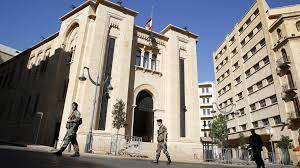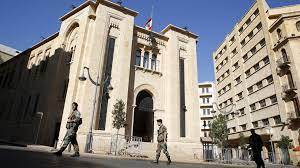The door for candidacy in the parliamentary elections in Lebanon, scheduled for May 15, has closed with a total of 1,043 candidates, an increase of 67 candidates compared to the 2018 parliamentary elections. The total number of candidates is 1,043, including 155 women, representing 15% of the total candidates. International gender and women's issues consultant Randa Yassir told Sky News Arabic that "notably, the nomination of women this year reflects a 37% increase compared to the previous elections in 2018."
Yassir added, "This year, there are 103 candidate lists, of which 65 include women." She also noted that the increase in the number of women included in the electoral lists was primarily by entities outside the current authority, although some existing parties have nominated a reasonable number of women. Yassir believes this representation is "not enough for high female representation in the Lebanese Parliament, especially given the current electoral law and the mentality of voters affiliated with political parties. Regardless of the name promoted by the list, whether it is female or not, these parties will vote for the entire list."
She stated, "In case there is a breach in the lists, there could be a chance for women to be elected, but they would not constitute more than 30% of the list, which is not guaranteed, especially if the order of names in these lists does not favor women or is not balanced between men and women."
Yassir specified that the presence of women in the lists does not cover all electoral districts in the country, explaining that "the percentage of women is high in the Beirut II and Bekaa II districts, reaching 27%, while it is 24% in other districts like Beirut I. The Bekaa III and Mount Lebanon I and II districts remain the least represented areas for women, with percentages ranging between 6% to 7%."
Regarding the electoral programs of women, she said, "If we look at the content of their electoral programs, we find them advanced, especially regarding political stances related to the current situation and hope for change, accompanied by men who believe in the participation and presence of women." She concluded, "It is essential for women to reach Parliament to break the stereotype that women don't engage in politics. Through the varied programs of female candidates covering security, politics, economics, and corruption, there is a glimmer of hope, and it would be beneficial if all candidates were at a political level that carries a transformative framework."
It is noteworthy that Lebanon is preparing for parliamentary elections in mid-May, with the United Nations program readying all preparations for the parliamentary elections in Lebanon, from candidate registration to securing polling offices, staff, registration systems, and stationery. The program has secured 18,000 ballot box dividers, with the total number of polling stations in Lebanon reaching 7,000. Additionally, 25,000 boxes of discreet ink have been secured for use on election day, along with all logistics, stationery, and materials used on that day.




